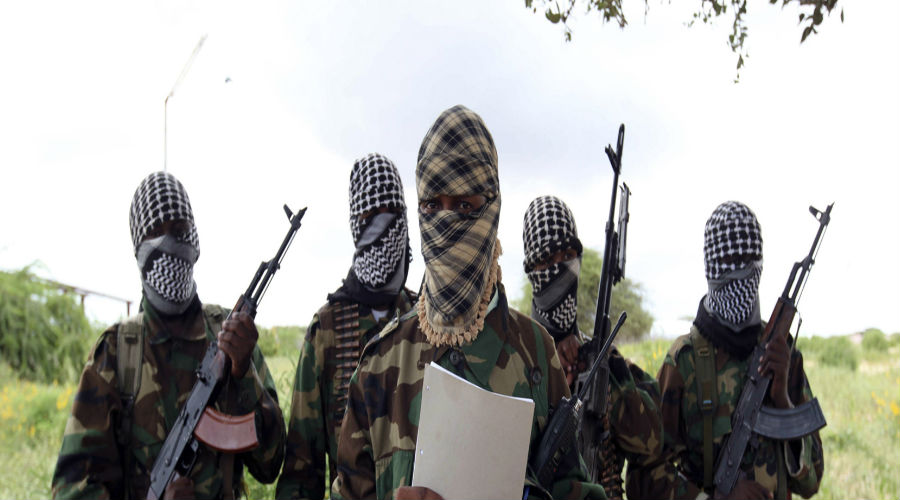The Harakat al-Shabaab al-Mujahideen (Mujahideen Youth Movement, more commonly known as al-Shabaab), has recently escalated their attacks. This escalation came after members of the Federal Parliament of Somalia’s Upper House and Lower House had elected Mohamed Abdullahi Mohamed, better known as Farmaajo, who is a former prime minister with dual Somali-US citizenship, on February 8, 2017.
The recent escalation aims to create new obstacles to block efforts being made by several involved parties to bolster political and security stability across Somalia. This was evidenced when al-Shabaab militants launched three mortars near Somalia's presidential palace on February 16 killing two civilians. Two days later, the group carried out a twin terrorist attack in a bid to kill former Deputy Security and Intelligence Chief Mohammed al-Dairi, who was injured while one of his guards was killed. At the same time, the group assassinated Mohamed Omar Haji, a Somali politician. In the most recent al-Shabaab’ attack, a bombing targeted a military base in Mogadishu on April 9, 2017, killed 15 people, mostly civilians.
Multiple Goals
Through its recent escalation of attacks, the militant group appears to be seeking to achieve several goals of which the following stand out:
1- Blocking Farmaajo government’s efforts. Al-Shabaab group recognizes that it would have to face negative consequences if the new government succeeded in carrying out its policies and programs that received notable regional and international support. For some approaches, the group began to voice concern after Farmaajo was elected president, especially because the new president’s policies would help establish and perpetuate security and political stability. The militant group that has always took advantage of security and political turmoil to expand its activity across Somalia rejects this.
In other words, the group evidently appears to be seeking to create obstacles to block the government from carrying out its set policies that would lead to a gradual decline in domestic and foreign support for the group. This obviously is a source of concern for the group, which believes that declining support would be a prelude to an increased involvement of parties in the war against it in the coming period.
2- Terrorist Recruitment. Through high-profile terror attacks, Al-Shabaab seeks to back al-Qaeda in East Africa because it views itself as the major and best affiliate to represent the global terror organization’s ideology in this region. Through this ideology, the group seeks to recruit a maximum number of people inside and outside Somalia. This approach appears to be backed by al-Qaeda, which works hard to take advantage of an obvious decline in ISIS’ capabilities in Syria and Iraq to restore and expand its own influence once again. Several reports indicate that al-Shabaab’s crackdown on al-Qaeda elements and its inadequate financial resources have recently led to a recent decline in the local group’s activity and influence inside Somalia.
3- Bringing Back Dissidents. At the same time, the group attempts to bring back groups of militants who broke away from it to join the ranks of ISIS over recent years. That is because it recognizes that the decline in ISIS’s financial and human capabilities in areas under its control in both Syria and Iraq will mean that its weaker branches- that do not have strong presence or activity on the ground- will eventually collapse. This possibility will likely compel these branches to join the ranks of their previous organizations again, where new conditions will be imposed to prevent any defections in the future.
Potential Consequences
Al-Shabaab movement’s potential escalation of attacks in the coming period can possibly impose several consequences as follows:
1- Exacerbating security turbulence. Fresh terrorist attacks by the movement in the future are expected to add to the burden on the new government. This is particularly because an expected escalation would come as part of a domestic context not favorable for the new president and his government, where security turbulence further weakens the local authorities’ ability to control the country’s borders. This is worsened by simultaneously facing domestic threats and continued tribal conflicts.
2- Increasing likelihood of attacks on African Union’s troops. The possibility that al-Shabaab movement would target the 22000-strong contingent of the African Union’s soldiers stationed in Somalia cannot be ruled out. That is because the AU force receives notable attention from regional and international powers that seek to bolster security and political stability in Somalia. Without a doubt, al-Shabaab group understands very well that the presence of these troops blocked its expansion to new areas, within Somalia, and reduced its presence in others, especially because these troops were involved in several clashes with the group in the past.
3- Transcending Somali border. Al-Shabaab is likely to resort to escalating activity outside Somalia once again through high-profile cross-border terror attacks in neighboring countries, after a one-year pause. This could occur especially in countries like Ethiopia, an African Union member, which withdrew its troops in November 2016. In addition, Kenya, another AU member, could be targeted. Al-Shabaab group claimed, in late January 2017 that it had attacked a Kenyan military base inside Somalia that killed 50 soldiers and seized military vehicles and arms, a claim that the Kenyan government denied later.
In light of the above, it is possibly safe to say that al-Shabaab al-Mujahedeen’s recent escalation of terror attacks would pose the first challenge for Farmaajo’s government. Accordingly, this forces regional and international powers involved in the Somali crisis to upgrade their cooperation in a bid to curtail the group’s ability to carry out their threats that may very well transcend the Somali border and spill over into neighboring countries, and even impact security and political stability in the whole region.


